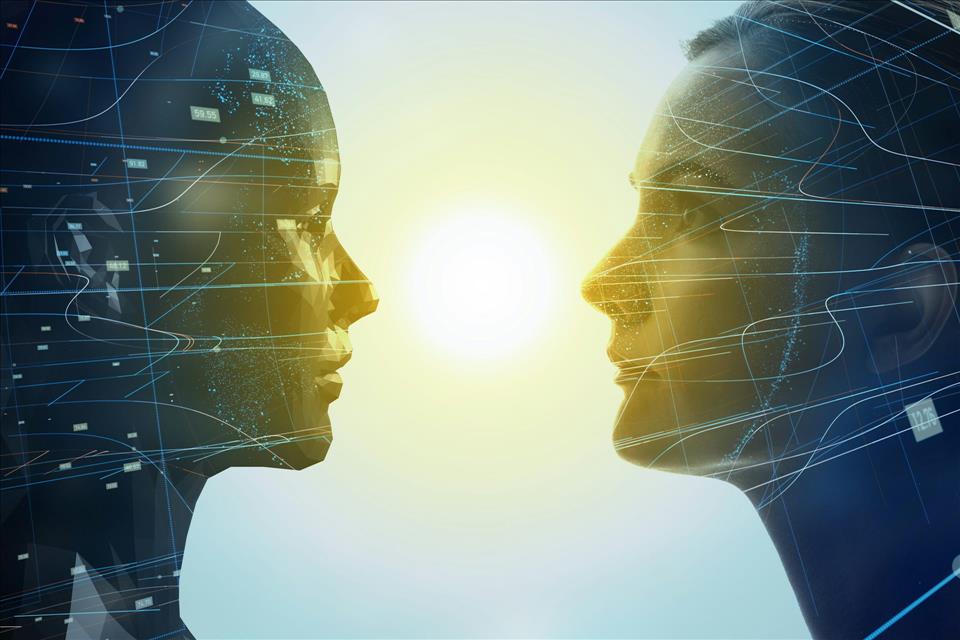
A 'Digital Twin' Of Your Brain Could Predict Mental Health Issues, And Slow Cognitive Decline
A digital twin is a virtual replica of a real system, a dynamic model that, fed by real-time data, mimics the behaviour of what it represents. It is like having a smart mirror that not only reflects something's state, but also learns from each movement it makes in order to predict the next.
Digital twins have been used in various sectors for years. They help us to predict aircraft faults before they occur, to optimise entire factories, and to design cars that learn from thousands of users' driving data. More recently, this technology is being applied in agriculture , leading to significant advances in, for instance, predicting the impacts of climatic and natural changes on crops.
In medicine, digital twins are a gamechanger. There are, for instance, approaches based on cardiac digital twins that simulate the functioning of each patient's heart with a remarkable level of detail. This will allow doctors to anticipate how a specific heart will respond to an arrhythmia or a specific treatment, all without ever putting the actual patient at risk.
This combination of virtual modelling and clinical data opens the door to more predictive, personalised and safer medicine, where therapeutic decisions are based not only on medical experience, but also on simulations of what will happen in a patient's digital twin. But what happens if we apply this to the human brain?
From factories to brainsCognitive and mental health are pillars of human well-being, but they are also fragile. Age-related decline, depression, anxiety and neurodegenerative disorders still present major challenges for medicine.
This is where artificial intelligence (AI) offers a window of hope. By integrating and analysing large volumes of data, AI can help detect disease earlier, better select patients for clinical trials, and even simulate each individual's progression using digital twins. AI offers a way to stay ahead of deterioration, design tailor-made interventions, and speed up the development of safer, more effective therapies.
A team of scientists from Duke University, Columbia University, Nebrija University, and CogniFit have recently developed a new framework for addressing people's mental and cognitive health through digital cognitive twins. These are virtual representations that integrate data from our brain and behavioural activity, our daily habits, and our emotional responses. By using AI, these dynamic models can learn and update themselves with each new interaction.
We envisage that every person could have their own cognitive“digital twin”, which can be used to predict how their memory or attention span will evolve, and to suggest personalised activities to train the mind before a serious problem arises.
Read more: What are digital twins? A pair of computer modeling experts explain
Adapting existing techThe key to this revolution lies in integrating the devices many of us already have – things like smart watches, activity trackers and sleep sensors – to provide continuous information about our bodies. Data associated with heart rate, sleep quality, activity level and stress could already be feeding real time data into a“digital double” that learns from these signals, and adapts recommendations or cognitive training to our physical and mental state at any given moment.
AI's role would be akin to orchestra conductor, coordinating all this data and integrating it into a system that not only reacts, but even anticipates our needs.
Personalised brain trainingUntil now, digital“brain training” has been broadly limited to entertaining games, with limited benefits. Cognitive twins are a different thing altogether – far beyond sets of generic exercises, they offer a dynamic ecosystem that is adjusted in real time to each person, overseen by health professionals, and backed up by scientific evidence. This is a paradigm shift, from a“one size fits all” approach to truly personalised and preventive medicine.
Of course, there will also be challenges. Digital twins in this field will need to be built in a way that ensures data privacy, and that the decisions made by algorithms are transparent and ethical. We also cannot overlook the digital divide that could exclude older people or those with less access to technology.
Nevertheless, we should not lose sight of the potential benefits – a recent meta-analysis found that using technology helps to prevent and delay cognitive decline , both normal and pathological.
Digital twins are poised to be one of the great revolutions in medicine and cognitive science this century. Decades ago, the idea of having a computer in our pockets seemed like science fiction. In a few years it will seem just as natural to have a cognitive twin accompanying us and looking after us. After all, who better than our own digital double to help us understand, anticipate and take care of ourselves?
This article was originally published in Spanish

Legal Disclaimer:
MENAFN provides the
information “as is” without warranty of any kind. We do not accept
any responsibility or liability for the accuracy, content, images,
videos, licenses, completeness, legality, or reliability of the information
contained in this article. If you have any complaints or copyright
issues related to this article, kindly contact the provider above.















Comments
No comment